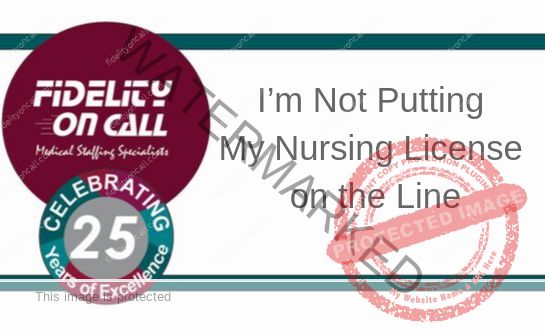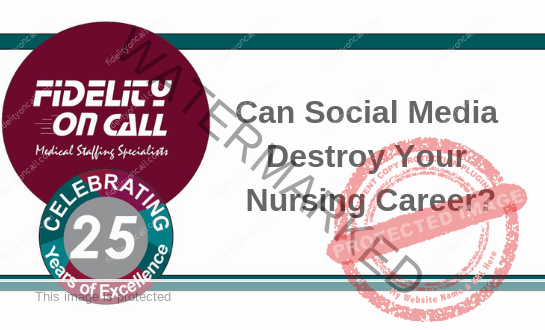At Fidelity On Call we have a social media policy. And, it seems logical. If you need to vent about the hospital you are assigned to or about Fidelity On Call, you should do so in a proper manner and not on social media.
There have been many examples of nurses who were disciplined because of not following their company policies. We recently read an article where a registered nurse posted comments on her Facebook and Twitter pages criticizing the end-of-life care her grandfather received at a healthcare facility. She went on to say that she felt the staff was incompetent, questioned their compassion and whether they even cared about their residents/patient. She then went a step further and identified the facility.
She said, “As an RN and avid healthcare advocate myself, I just HAVE to speak up!” She then linked her post and comments to other pages and, of course, all of the discussion became public.
Needless to say, the facility filed a complaint against the nurse. After a very thorough investigation, it was determined that she:
- Identified herself as a registered nurse in order to give credibility and legitimacy to her comments
- Criticized the care given by other nurses
- Knowingly made her comments widely available to the public
- Did not get all the relevant facts regarding her grandfather’s care before posting her criticisms
- Did not follow the appropriate organizational channels to express her concerns
The investigation revealed that the nurse had only been in the facility a few times and she received her communication from family members who reported to her.
She never discussed any concerns she had about her grandfather’s care directly with the facility. Additionally, prior to her post, she had only made one minor complaint about the facility and it related to a hand sanitizer.
After determining that the comments harmed the reputation of the nursing staff at the facility and undermined the public confidence in them, this nurse was disciplined.
In addition to a self-reflective essay, on-line education on ethics, a fine of $1,000 she had to pay $25,000 toward the costs of the proceedings (the actual costs were six times this much). Although the nurse appealed the decision, the ultimate finding was upheld.
This is just one example. We could, truthfully, go on and on about employee posts and the lack of restraint when hitting the internet.
With Social Media, it is always best to err on the side of caution
Never post about a facility you are assigned to or the patients you are caring for. You don’t even have to identify the facility or state that you are a nurse. Most of those who follow or have friended you, know you are a nurse and, chances are, someone at the facility you are assigned to is also a friend or follower.
Additionally, if a facilities’ staff member is upset over something and makes a post on social media, never comment on their post. It puts you directly in the line of fire.
Even social media posts that promise to “go away” in a matter of minutes or hours can hang around forever. What keeps someone from seeing it and snapping an image?
We think being aware of the pitfalls, using good common sense, and following a Social Media policy make your professional career much more enjoyable and certainly more drama free. It could even save you thousands of dollars!






